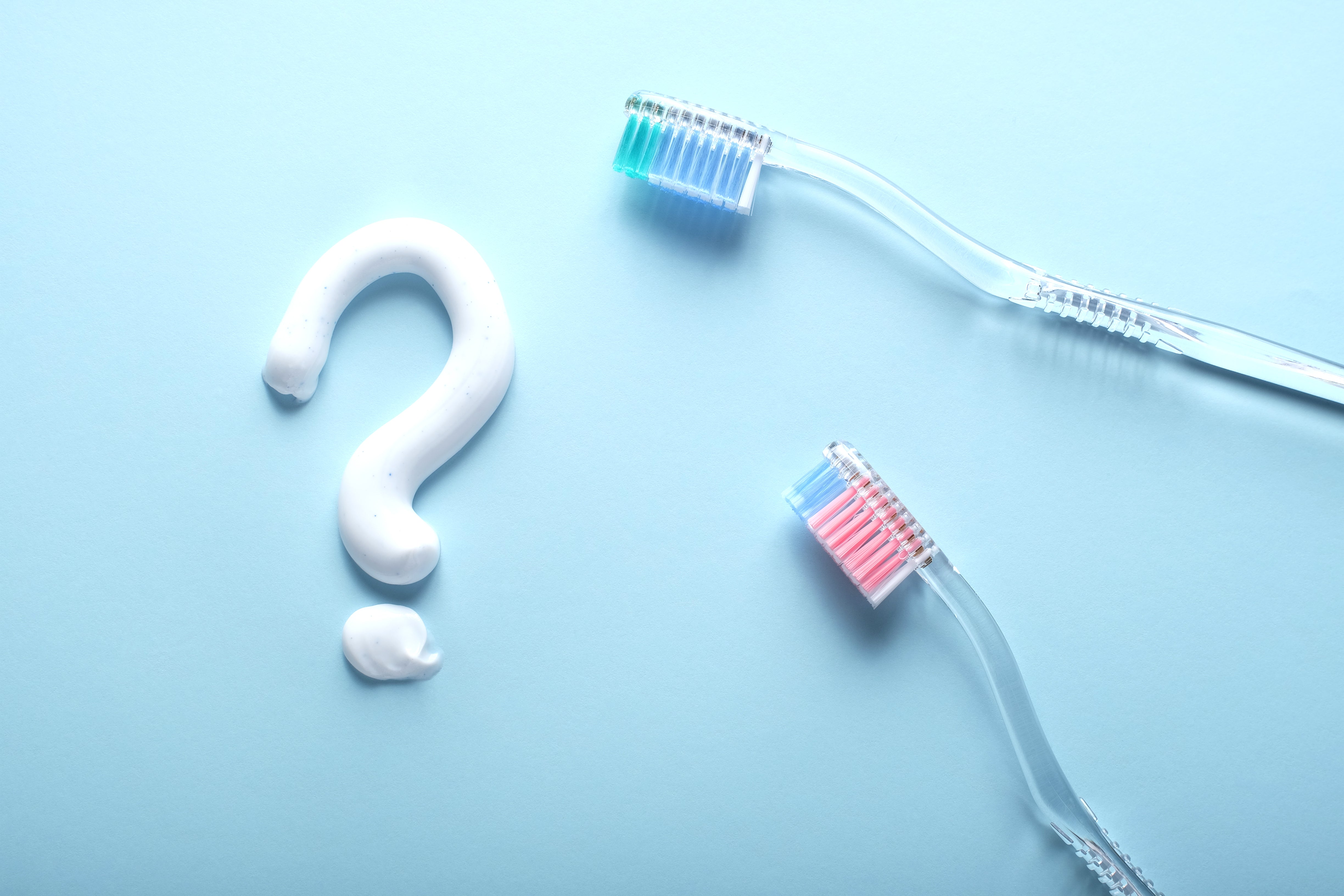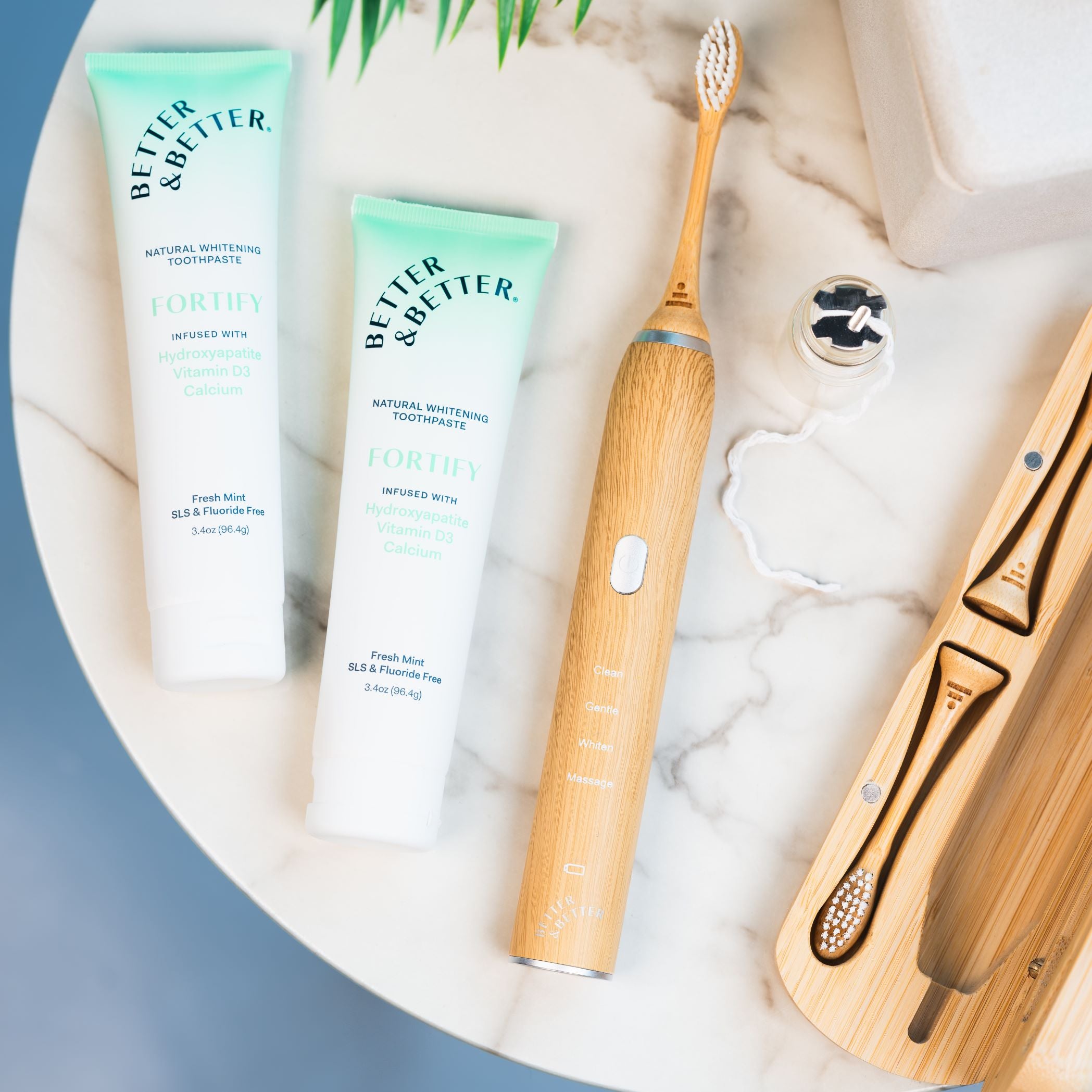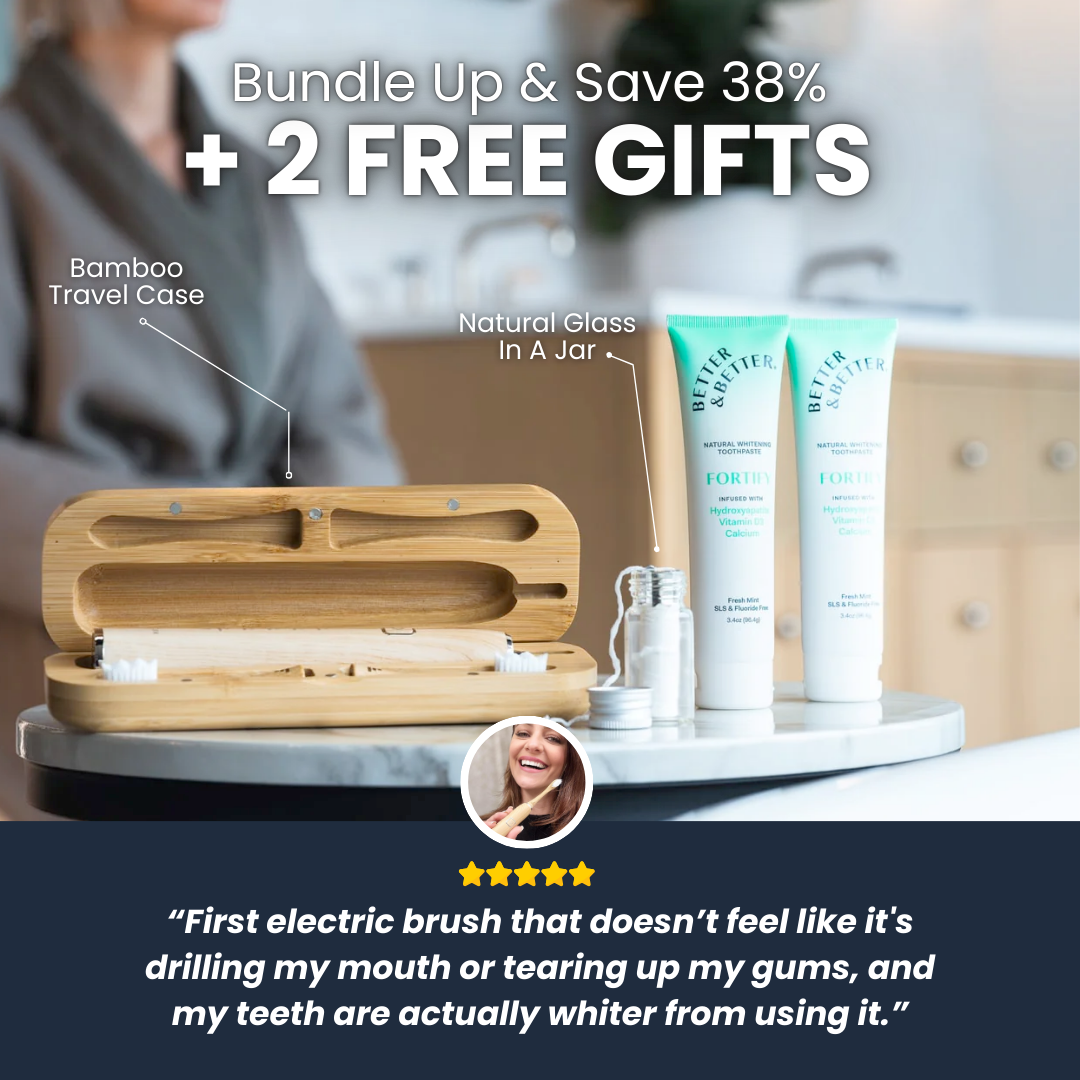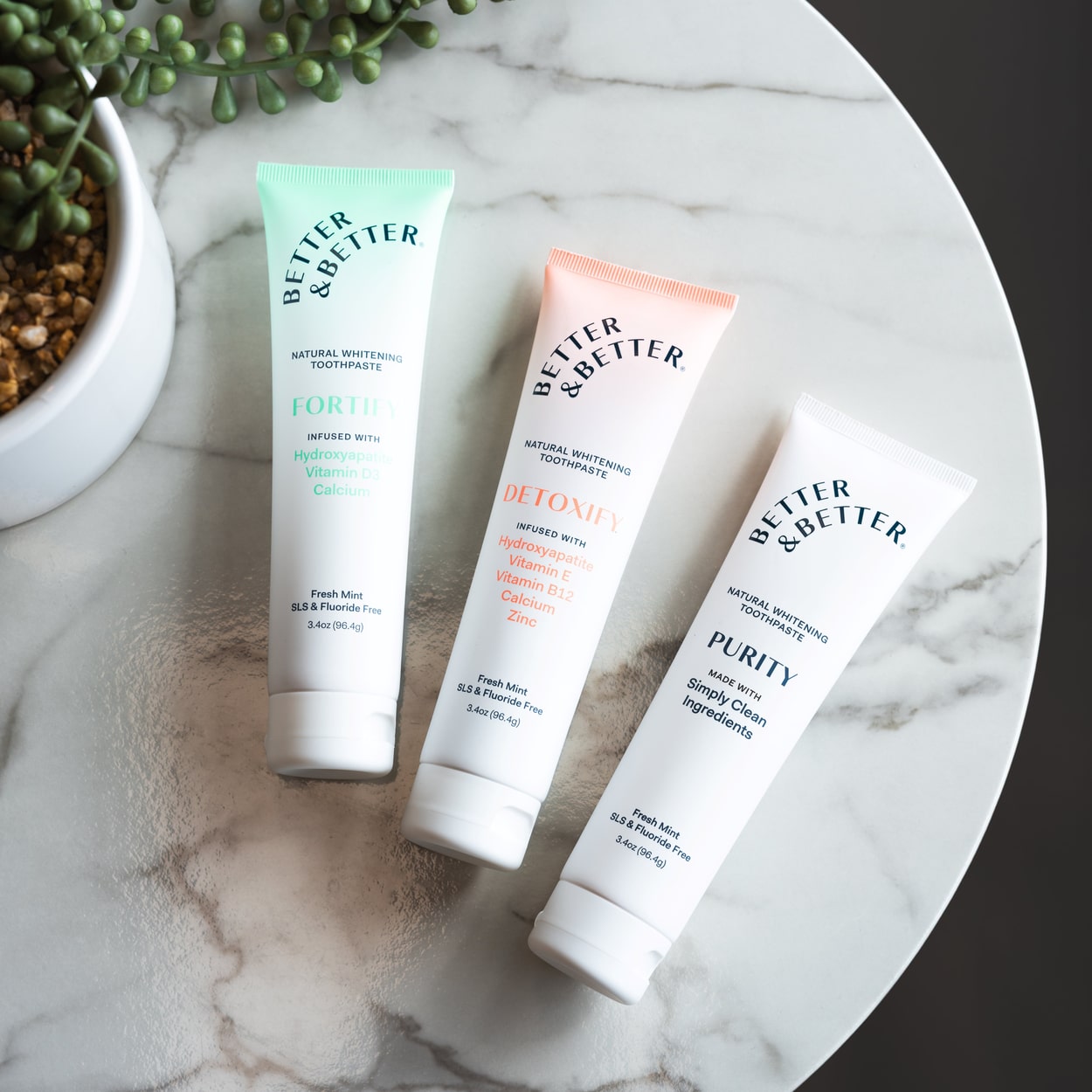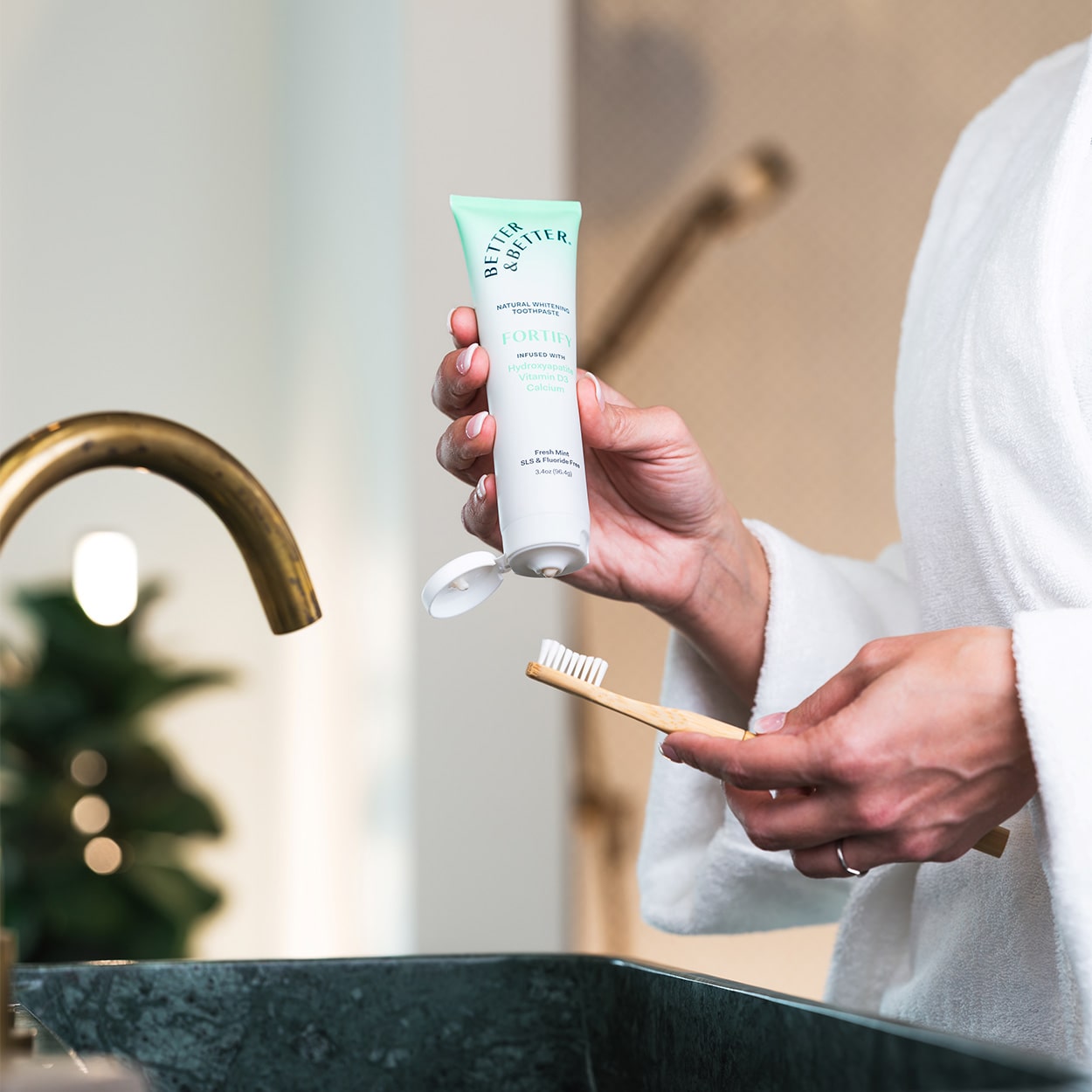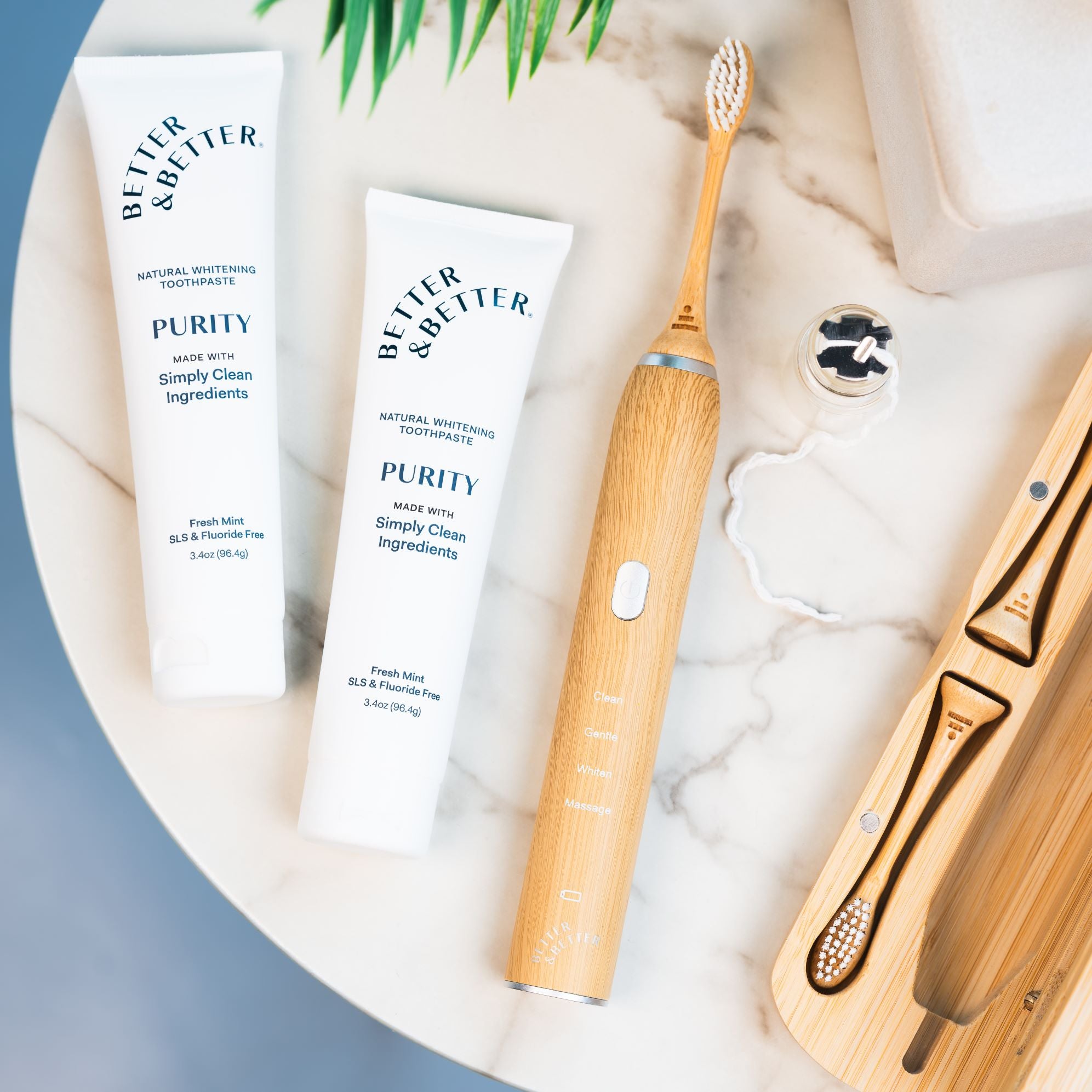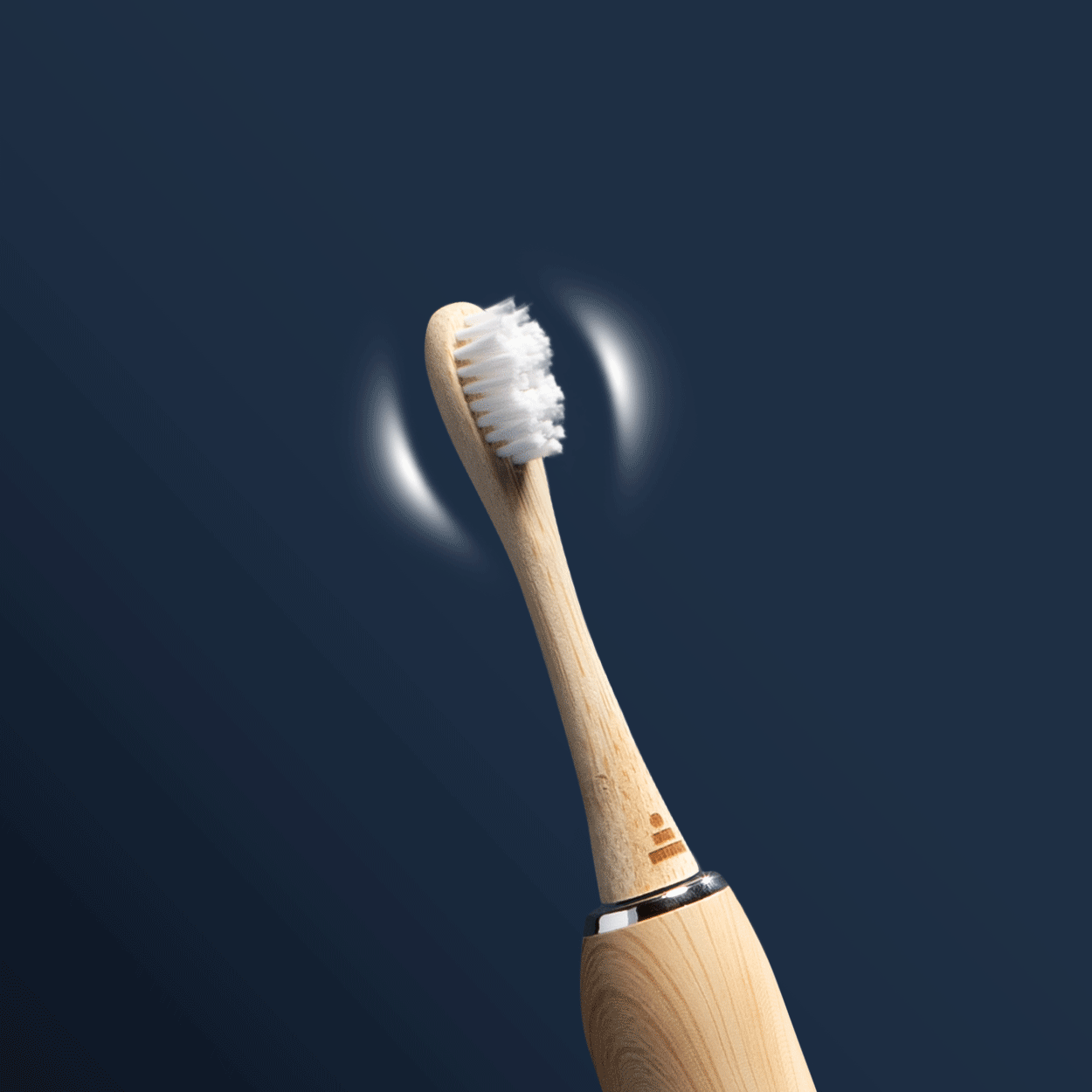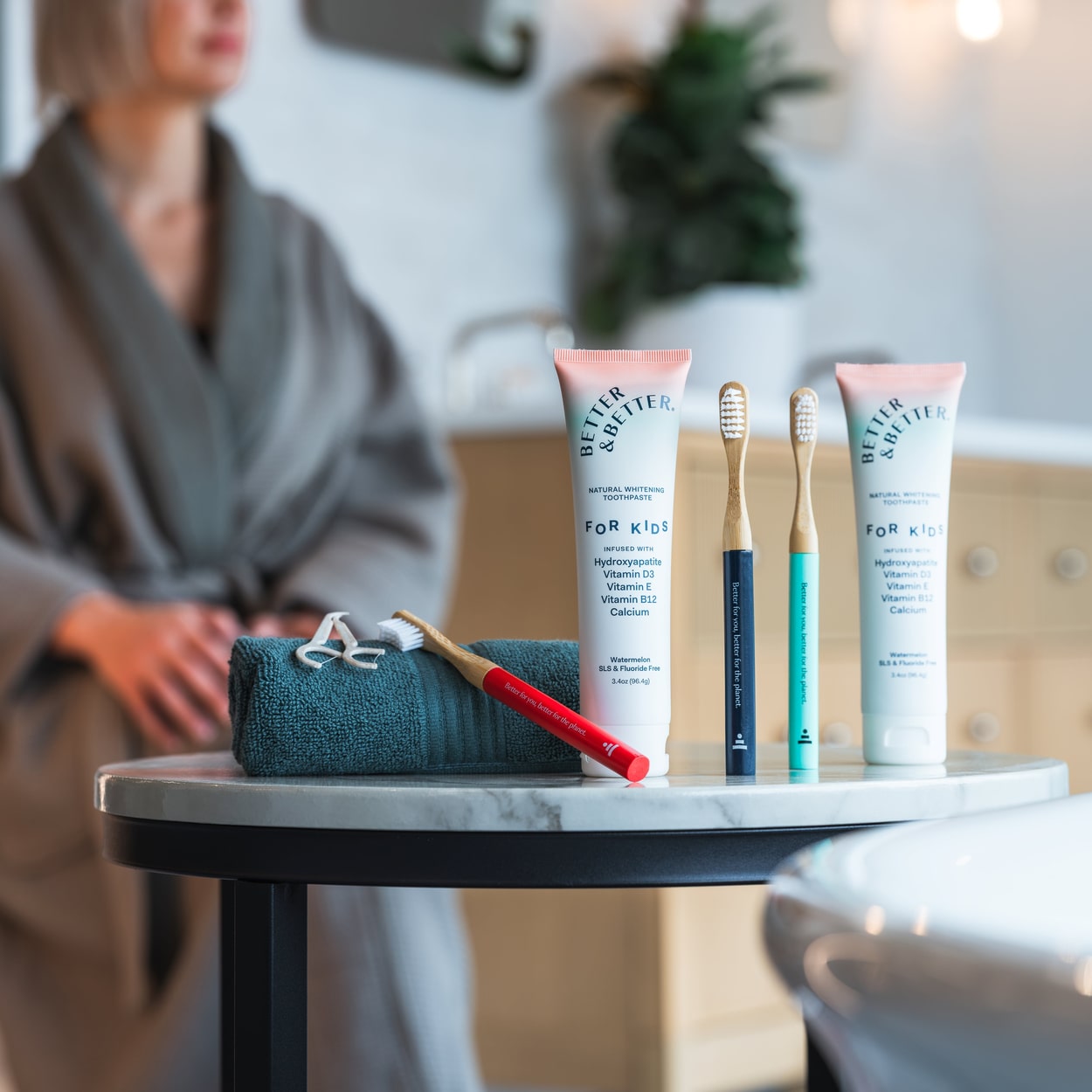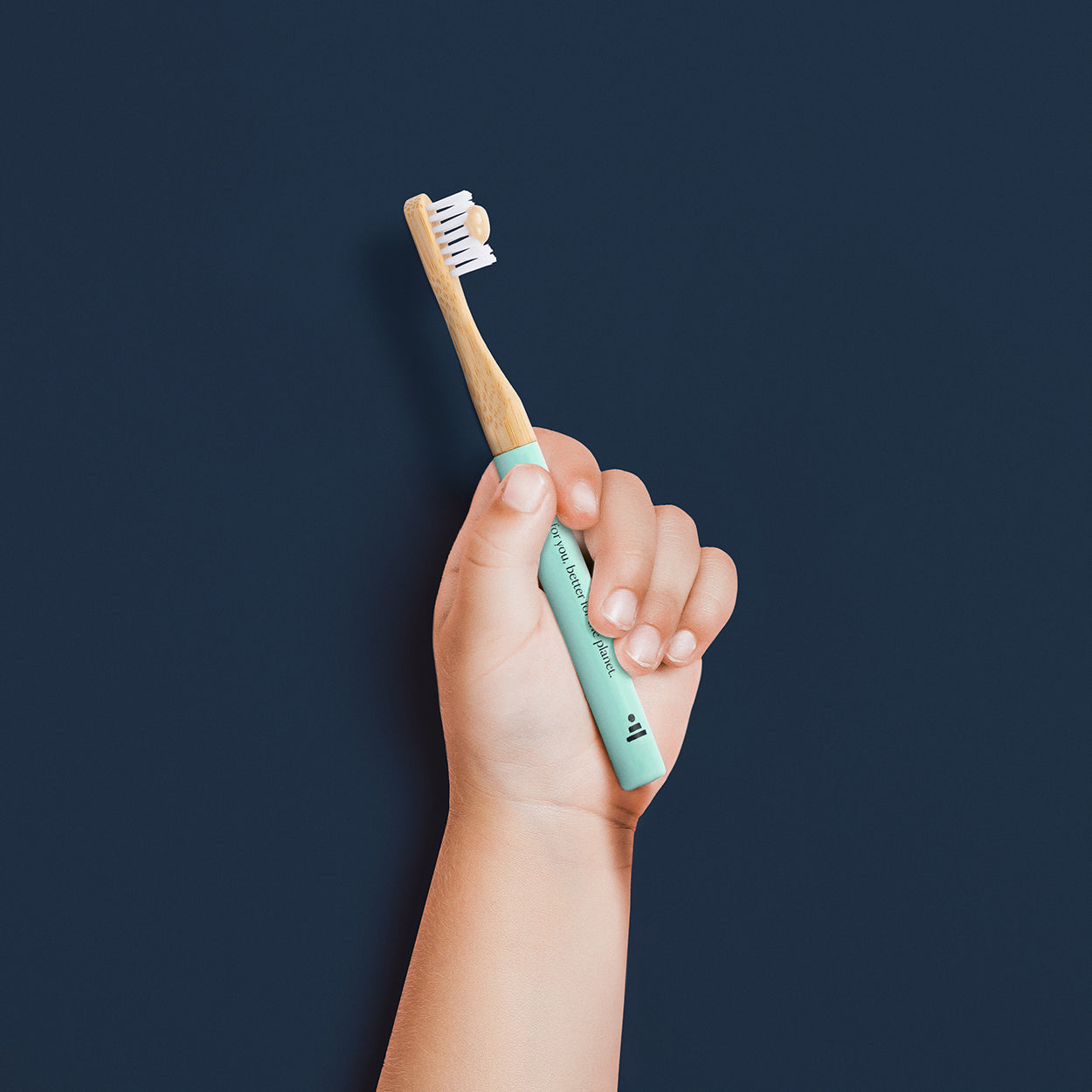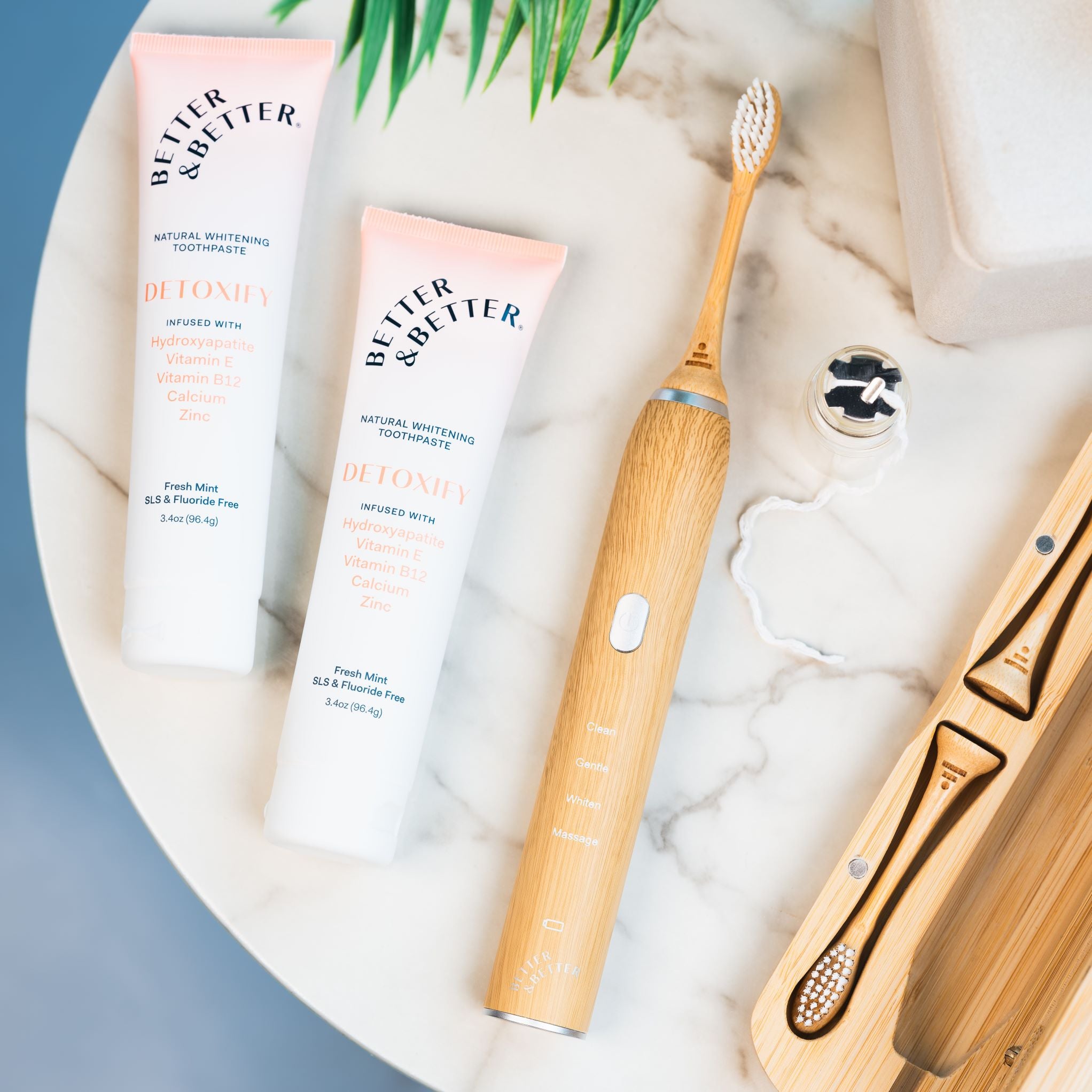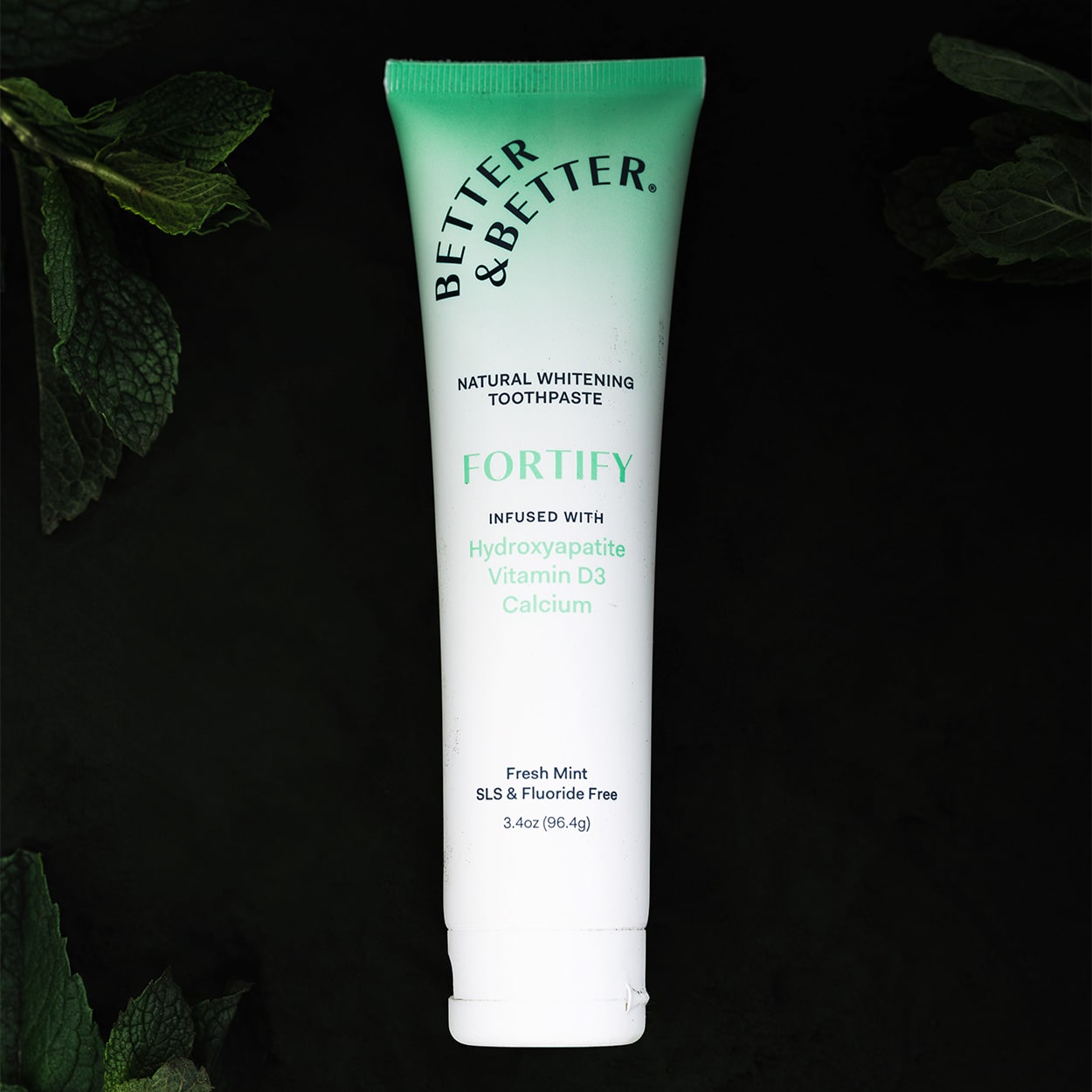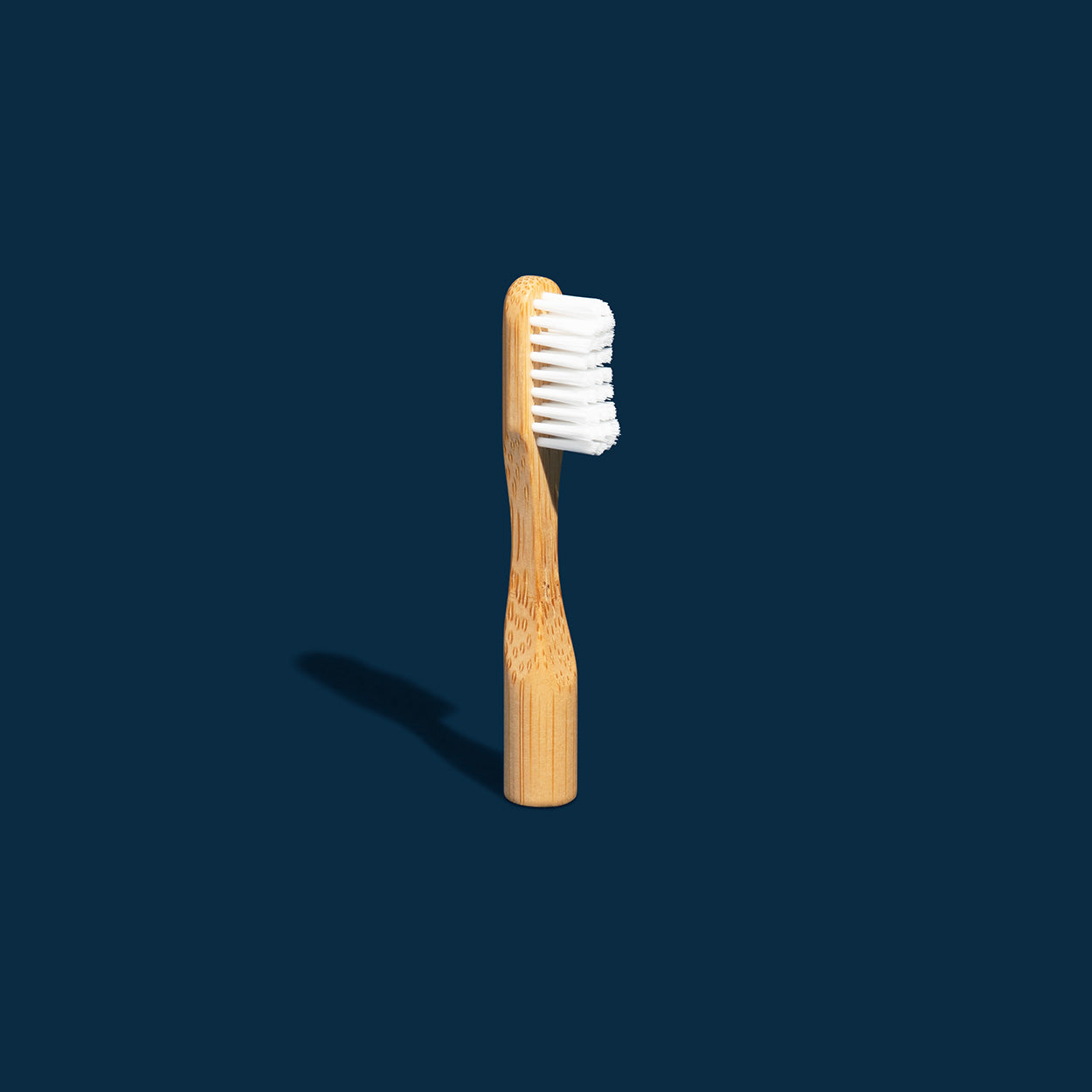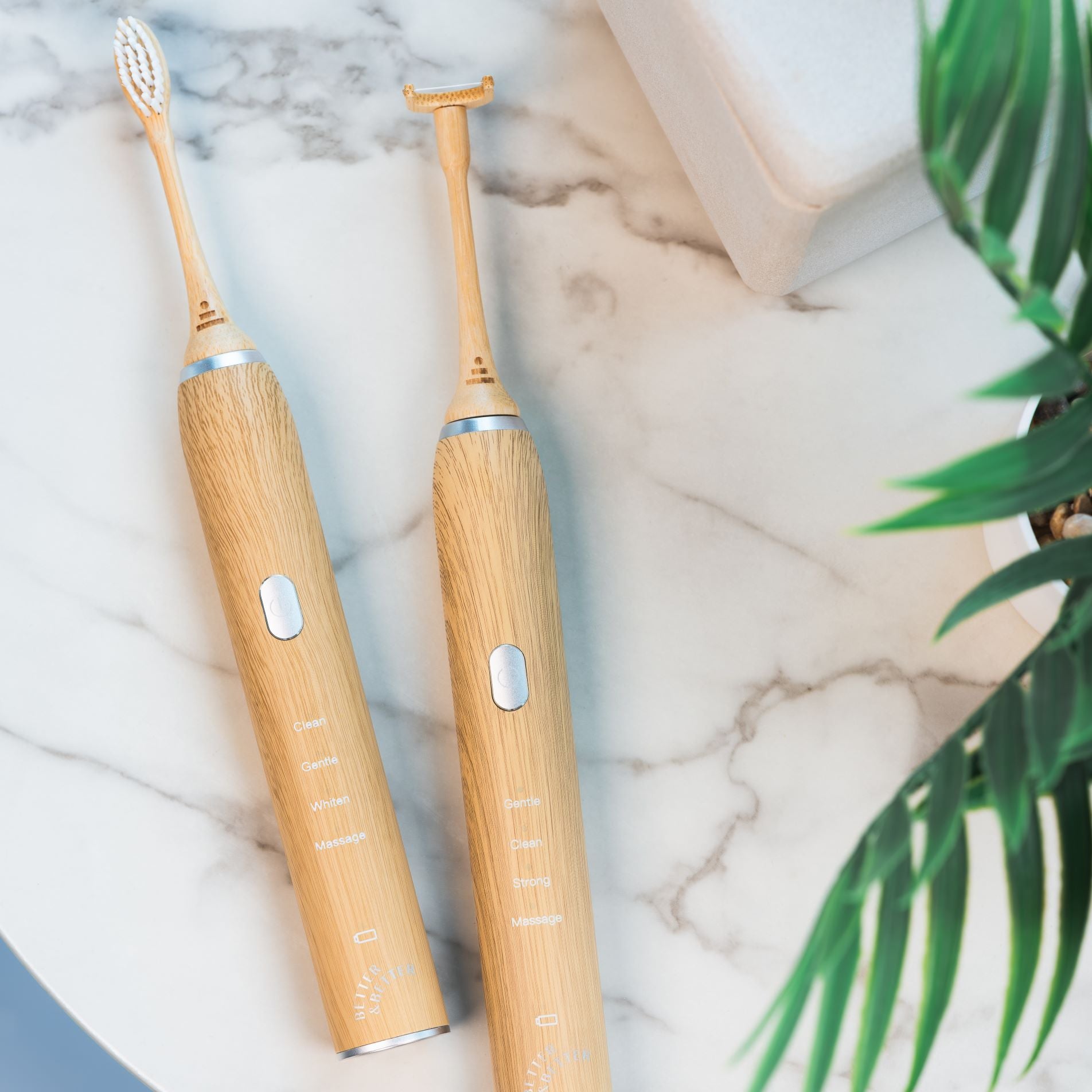Ever wonder what makes your toothpaste foam up when you brush your teeth? Chances are it’s a soap-like chemical compound called sodium lauryl sulfate, or SLS.
SLS has been a common ingredient in leading toothpaste brands like Colgate and Crest for decades. But as consumers have started to pay closer attention to ingredient labels, SLS has raised a lot of red flags—understandably so. Who wants soap in their mouth?
SLS in toothpaste is far from ideal—but not for the reasons you might think. Coming up, we’ll cover everything you need to know about SLS in toothpaste, including why it’s used, whether it’s safe, and the case for brushing with SLS-free toothpaste.
What Is Sodium Lauryl Sulfate (SLS)?
Sodium lauryl sulfate (SLS) is a compound that’s used as a detergent and foaming agent. It helps products lather up and produces a foamy, bubbly consistency. SLS is a “surfactant.” That means it lowers surface tension to lift and remove debris where it’s applied (like your teeth).
SLS is made by reacting petroleum-derived alcohol with sulfur trioxide to produce hydrogen lauryl sulfate. From there, it’s neutralized with sodium carbonate, and the end product is sodium lauryl sulfate. Confused? We don’t blame you.
You may also hear about a related surfactant called sodium laureth sulfate (SLES), which has a similar chemical structure to SLS but is thought to be less irritating.
SLS is cheap and abundant. That’s why you’ll find it in countless personal care products like shampoo, shaving cream, mouthwash, body wash, and of course, toothpaste. It’s estimated that half of cosmetic products contain SLS.
SLS isn’t limited to the self-care aisle, either. It’s used in carpet cleaners, industrial detergents, and engine degreasers—yikes. Your mouth is highly absorbent, which comes in handy for processing nutrients. But the flip side is you can absorb nasty ingredients too.
So, why would anyone brush their teeth with a chemical you need to shampoo your rug?
Why Do Companies Put SLS in Toothpaste?
The main reason SLS gets added to toothpaste is to break up plaque and tiny food particles on your teeth. This allows for a deeper clean.
SLS also makes toothpaste molecules more slippery so they disperse evenly throughout your mouth. It’s the same reason bubbles spread through your hair when you scrub with shampoo.
That foamy feeling in toothpaste isn’t just a special effect—it’s necessary to get the most out of your brushing routine. But there’s a catch.
Is SLS in Toothpaste Bad for You?
According to a safety assessment by the International Journal of Toxicology, SLS can irritate your skin, especially if the product has a high concentration or after prolonged exposure.
One of the biggest concerns about SLS is that it causes cancer. However, there’s currently no evidence to suggest that SLS is a carcinogen or increases cancer risk, according to the American Cancer Society.
The FDA states that the use of SLS is generally safe as a food additive and in household cleaning products. However, researchers have found a strong correlation between SLS and a painful oral health condition: canker sores.
Can SLS Cause Canker Sores?
According to UC San Diego Health, you should steer clear of SLS if you have a history of canker sores since the chemical can worsen and even cause them.
In 2019, the Journal of Oral Pathology & Medicine published a review examining the link between SLS and aphthous stomatitis, the condition that causes mouth ulcers known as “canker sores.”
Their verdict was clear: patients significantly reduced their pain, frequency, and duration of canker sores when they stopped brushing with SLS toothpaste.
The leading theory is that SLS weakens the mucous membranes in the mouth, making the oral tissue vulnerable to canker sores. This should come as no surprise, given the reputation of SLS as an irritant.
“The available evidence suggests that patients with [canker sores] may benefit from using SLS-free dentifrices for their daily oral care,” the researchers wrote. (Pro tip: you can also try vitamin B12 for canker sores).
Curious about SLS-free toothpaste? Keep reading.
The Solution: SLS-Free Toothpaste
SLS may be a “standard” toothpaste ingredient, but that doesn’t mean you need it to clean your teeth. That’s why we developed our Purity Toothpaste, which creates the foaming effect you’re familiar with—minus the risks of SLS.
The secret ingredient is sodium cocoyl glutamate: a vegetable-based cleanser and gentle foaming agent. Sodium cocoyl glutamate has an EWG score of 1, which indicates the lowest possible risk of health hazards.
In addition to being SLS-free, our toothpaste is fluoride-free and 100% vegan. (For a deeper dive into our ingredients and why we chose them, head over here.)
Whether you’re battling canker sores or just want to nix the nasty ingredients from your brushing routine, we have you—and your mouth—covered.


